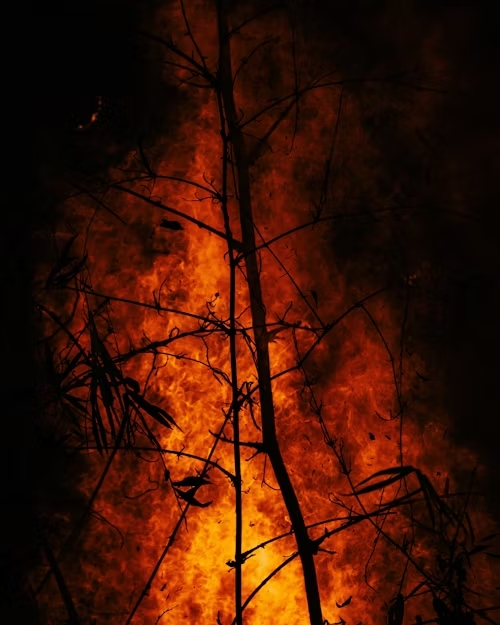The helplessness of a people in the face of the unbridled and immoral appetite of the economic and political elite.
When the powerful feel that the people are surplus to requirements, it is the people who are utterly helpless and therefore die.
It seems unbelievable that a state like the Chilean one, which spends billions of dollars on “toys” for the Armed Forces and the Public Order and Security Department, or which wants to have luxury cars for the judges of the Supreme Court, does not improve the situation in terms of infrastructure, equipment, training, prevention, information campaigns and planning with those affected in the areas of highest risk and demographic concentration, ignoring for decades the assessments and proposals of experts.
The consequences of the catastrophic mega-fire in the Valparaiso region, which started on 2 February, have left 131 people dead and caused considerable material damage, with around 12,000 (twelve thousand) homes destroyed or damaged.
These fires, which have affected different regions of our country in recent years, especially the region of Valparaiso, illustrate what some social scientists have been pointing out since the 1970s: that natural disasters, whether spontaneous or deliberate, cause tragedies that highlight the social inequalities that exist throughout the world, when they coincide with social marginalization, poverty, and fragility, affecting above all the most impoverished sectors of the population, who, unable to choose where to live, occupy public land or land with no apparent use, located in areas of greater risk and fragility and outside areas of state interest; They are the “callampas” or camps of the marginalized, whose life or death is of no importance to those in power.
For these communities, living in total precariousness, the priority is survival and is therefore far removed from the preoccupation with self-care actions associated with natural disasters, establishing a radical difference in the capacity to mitigate, prepare for, respond to, and recover from the effects of events.
The suspicion that these fires were deliberately set is reinforced by statements made by the governor of the Valparaíso region, Rodrigo Mundaca, to various media. On the other hand, technical experts urge us to look at the results of recent fire investigations, which show a low percentage of intentional acts and a very high percentage of carelessness, negligence of the failed state in the hands of the elite, and their lack of attention to a situation that, as we know, increases the risk of catastrophes.
Speculation about the causes, as we can see, goes in different directions: arsonists, the perfect conditions after years of drought, the “tomas” (where the marginalized and displaced by this inhumane system build houses), the voracious appetite of the real estate companies that buy up the damaged land at rock-bottom prices, saving millions and earning hundreds of times what they invested.
The other view is that of the forgotten village, its life of abandonment, and its incredible strength.
Despite all this, the almost criminalized struggle of the leaders of the “homeless” in our country is still going on, fighting and confronting the indifference of the state on the one hand, and the insane and immoral greed of the property companies on the other. Another front is being fought in parliament, where a bill for a 30-year ban on building on disaster sites has been in the pipeline for years.
The United Nations Office for Disaster Risk Reduction (UNISDR) guides state action, defining risk as “the potential losses to life, health, livelihoods, assets and services that could occur in a given community or society at a given time in the future as a result of a disaster”.
The recovery and empowerment of communities will be achieved through the organization that emerges within them, as they have a wealth of knowledge based on their experiences, and by paying particular attention to empowering the most marginalized groups, so that support and recovery reduce rather than increase inequalities, violence and risks.
In this course and the subsequent popular reflection on these monstrous experiences, and at the same time the warmest responses from good people who reach out with their human support to help build a different future.
Already today some people constitute the moral reserve and the future that overcomes the bitterness of the critical and senseless time that is upon us.
The debate on the need to seize power, the need for popular sovereignty, or whatever it is called in the future, will certainly make its way, overcoming all the difficulties that today seem monolithic.
Only a government in the hands of the people, in a new form that allows for joint work, collective action, and the empowerment that is being alluded to everywhere today, will be able to address these issues because they coincide with their interests and needs, relegating the privileges and businesses of the inhuman leadership that today takes the definitions for itself.
Contributors: Ricardo Lisboa Henríquez; M. Angélica Alvear Montecinos; Guillermo Garcés Parada; Sandra Arriola Oporto and César Anguita Sanhueza. Public Opinion Commission










